
Why drone strikes on Russia's oil and gas industry are more effective than sanctions?
Ukrainian drones destroyed a Russian-occupied Feodosia oil pipeline, as claimed by the Crimean Atesh guerilla group, marking another successful attack on the aggressor’s oil and gas sector
Espreso analyzes whether drones are really becoming more effective than sanctions and why the oil and gas industry is so important for Russia.
The article covers:
- The history of oil and gas extraction and the resource war.
- Russia's oil and gas reserves and their significance.
- How Ukraine is gradually undermining Russia's oil and gas industry.
- Whether destroying Russia's oil and gas industry can halt the war.
The history of oil and gas extraction and the resource war
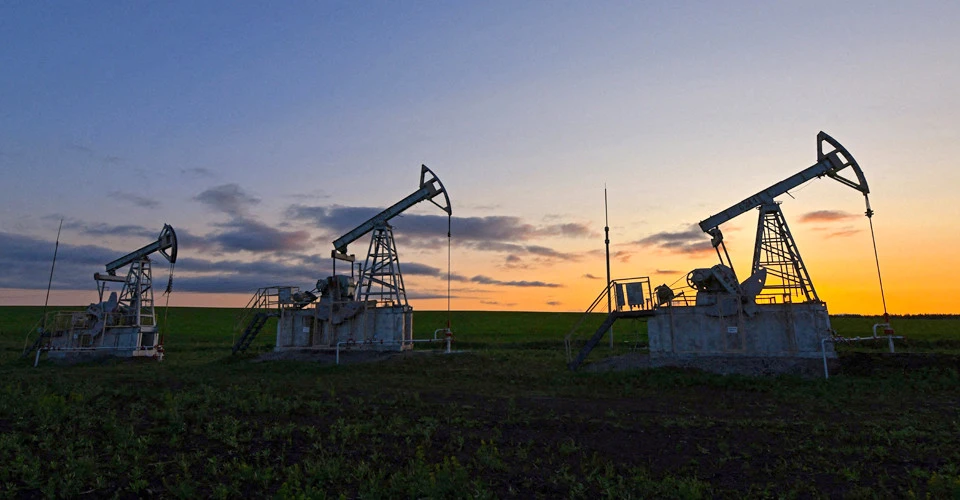
Photo: reuters
In most cases, people have fought and continue to fight over resources. From ancient tribes displacing others in search of better lands with abundant wildlife to colossal empires willing to annihilate entire nations for new riches to "civilize" others.
Over the past 100-150 years, oil and gas have emerged as the "horn of plenty" pursued by powerful nations. Interestingly, scientists still cannot agree on how this driving force of modern civilization came to be. Several theories exist about the origin of oil and gas, with one popular notion suggesting they are remnants of organic matter (including dinosaurs) that, over millions of years under various chemical pressures, became the winning lottery ticket, making some countries richer than others.
Although people have known about the combustible properties of crude oil for thousands of years and used it for heating, lighting, and later for military purposes, it was only in the nineteenth century that oil became commercially important and, by the way, gave rise to the world's first billionaire, American John D. Rockefeller. The United States pioneered mass extraction and refining of oil, triggering an oil boom that spread to Europe. Particularly powerful were the oil fields in Borislav in Galicia and around Baku in Azerbaijan (which is why Hitler wanted to capture the Caucasus).
As of today, oil deposits have been discovered on every continent except Antarctica (although they may exist there as well, industrial exploitation of the coldest continent is currently prohibited). Additionally, oil reserves have been found in the offshore areas of the World Ocean. There are over 30,000 known oil fields worldwide, with 15-20% of them being oil and gas fields. Approximately 85% of the world's oil production comes from just 5% of these fields. The largest reserves are found in Saudi Arabia, Kuwait, Russia, Iran, Iraq, Norway, the United States, Azerbaijan, Mexico, Venezuela, the United Arab Emirates, and Brazil.
It is important to note that oil and gas are finite resources. For example, according to the International Energy Agency (IEA), oil reserves were estimated at approximately 1.7 trillion barrels in 2019, which corresponds to about 50-60 years of consumption at the current rate. As for gas, the IEA estimated global gas reserves at approximately 206 trillion cubic meters, also equivalent to 60 years of consumption. However, due to technological advancements and the discovery of new deposits, these 50-60 years are constantly shifting. At the beginning of the 21st century, it was also said that oil and gas reserves would last for 50 years.
Therefore, the war for resources, especially those in scarcity, is particularly relevant. Experts note that this is one of the true reasons behind Putin's attack on Ukraine – to spend hundreds of billions of dollars to ultimately gain trillions. It's no secret that in terms of natural resources, the east and south of Ukraine stand out and are rich in various minerals and fossil fuels (including not only the coal of the Donbas but also the deposits of Ukrainian natural gas, which are among the largest in Europe).
"Do you think they are worried about the hundreds of billions of dollars already spent (arrested, lost)? The stakes for them are actually much higher – tens of trillions of dollars! And they are willing to go all the way for them! Russia cannot produce modern goods but wants to be an important, influential country in the world. And they do this through their vast territory and natural resources. ... Russia undoubtedly attacked Ukraine and wanted to seize it to have: a guarantee of preserving the stolen history, a buffer with NATO, a large territory, more labor resources, but most importantly – to have additional natural resources worth tens of trillions of dollars and to manipulate them to achieve their goals," economist Anatoliy Amelin wrote in May 2023.
Russia's oil and gas reserves and their significance
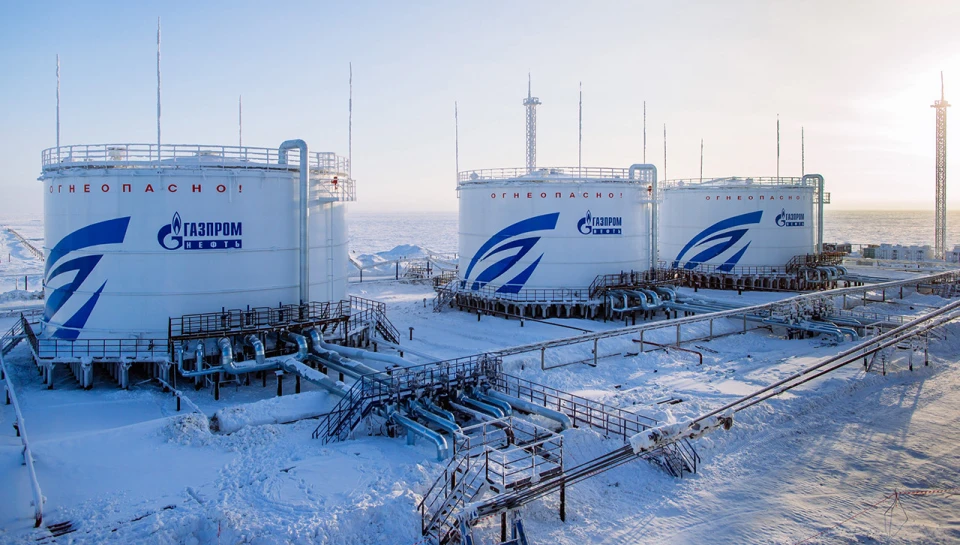
According to various estimates, Russia ranks 5th in the world for oil reserves (according to the US Energy Information Administration – 60-100 billion barrels) and first for gas reserves (according to the International Energy Agency – 1.7-2 trillion cubic meters). The sale of oil and gas accounts for approximately one-third of Russia's federal budget revenue. Moreover, it is the largest source of dollar inflows into Russia.
Despite Russia's impressive reserves of natural resources and its partial processing, sale, and the title of a "gas station country," its economy at best equals that of Spain's, but with significant differences. In terms of GDP per capita, Russia ranks approximately 70th in the world, while Spain ranks 30th. Not to mention the corruption within governmental structures and the concentration of power and money in circles close to President Vladimir Putin. This means that Russia inefficiently utilizes its natural wealth, earning money not through ready-made quality and market-demanded products but through the exploitation of raw materials on a large scale (sometimes economists refer to such countries as "banana republics").
"Russia accounts for only 1% of the world's GDP, it does not equal Italy, Spain, and China. For example, China's GDP accounts for 20%," said the EU's foreign policy chief Josep Borrell last year, referring to Russia as an "economic dwarf."
The main regions of Russia where oil and gas extraction takes place include Western Siberia (with the largest deposits), the Urals, the North Caucasus, Eastern Siberia, the Far East, and the Caspian Sea. These regions are strategically important for Russia. Additionally, Russia operates 32 major oil refineries (refineries) and another 80 mini-refineries. Most of them are located in the European part of Russia. Interestingly, according to analysts' estimates, the shutdown of just 20 major refineries could lead to the disruption of over 50% of Russia's refining capacity. Moreover, while Russians have largely learned to circumvent Western sanctions through intermediary countries, not only their aviation industry continues to suffer due to the inability to renew critical parts, but also the oil and gas sector. Because it is impossible to establish domestic production of precision parts within a year or two, and "secret" purchases through intermediaries do not always yield the desired and quick results.
Additionally, it's worth noting that Russians also use oil for weapon production. To create explosives, toluene, sulfuric acid, and nitric acid are needed. All oil refineries in Russia produce toluene from oil. Moreover, all plants in Russia producing nitric acid make it from ammonia, which is derived from natural gas. This means that not only Russian tanks and planes depend on fuel, but also their ammunition. Therefore, for Russians, oil and gas are not only a means to boost their treasury, allowing them, for instance, to continue the war with Ukraine (about half of Putin's government budget is spent on the military and defense), but also weapons with which they continue to fight daily.
How Ukraine is gradually undermining Russia's oil and gas industry
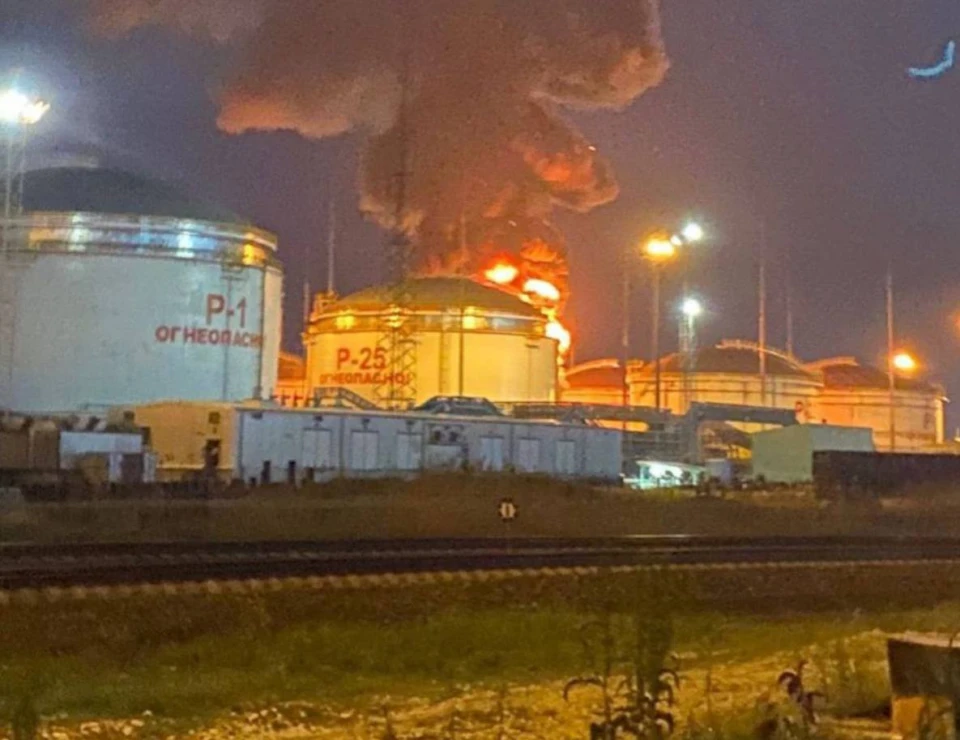
Reports of Ukrainian attempts to strike Russian oil refineries date back to the summer of 2022, such as the fire at the Novoshakhtinsk Oil Refinery in the Rostov region of Russia in June 2022. However, it was this year that such actions became systematic. This was made possible because Ukraine was able to manufacture and put into production its own kamikaze drones, similar to the Iranian "Shahed" or Russian models, capable of flying over 1000 km and accurately hitting targets. By launching dozens of these drones, there is a high probability that some of them will accomplish their mission. The vast size of Russia, however, has its downside, particularly for defense, as Russians lack the air defense and electronic warfare capabilities to effectively protect their strategic facilities.
"From a war economy perspective, destroying Russian oil refineries using drones is extremely effective. Since one UAV costs on average $5,000 to $10,000, and the equipment is worth millions of dollars, which cannot be immediately replaced as it is subject to sanctions, and Russia is unable to produce it independently," stated military analyst Denys Popovych to the 24th channel.
In mid-February, Reuters reported that Russia lost 1 million tons of oil product exports in January following Ukraine's strikes on the largest refineries, nearly 10% of the total volume. Bloomberg stated that compared to the first week of February, in the second week, Russian oil processing decreased by 94,000 barrels. According to the Moscow Times, in the first two weeks of February, the average daily oil processing at Russian refineries decreased by 4% compared to January and by 8.6% compared to February 2023 levels. This decline closely correlates with the attacks by Ukrainian drones, although official Kyiv has neither confirmed nor refuted these facts.
Here are several specific examples of successful operations by Ukrainian forces:
- In mid-January, the Lukoil refinery in Nizhny Novgorod was attacked, leading to a halving of the production of high-octane gasoline due to the emergency shutdown of one of the two catalytic cracking units, as reported by Reuters on January 15.
- On January 21, an attack on the Russian Novatek refinery in the Ust-Luga port area in the Leningrad region halted operations at the refinery until February 11. Although Russians were unable to fully restore the plant's operations, before the attack, the refinery processed nearly 20,000 tons of gas condensate per day. After the attack, they managed only 18,000 tons per day, according to Reuters.
- Before the attack on January 25, the Tuapse refinery processed 24,000 tons of oil per day, but operations ceased afterward.
- On February 3, a "fire" occurred at the Volgograd Lukoil refinery, reducing oil processing by an average of 10% compared to January.
- On February 9, drones attacked the Ilsky refinery, resulting in a 56% reduction in capacity and a halving of oil processing. Previously, the plant processed 16,000 tons of oil per day, now reduced to 8,300 tons per day.
- Also on February 9, the Afipsky refinery was attacked, reducing operations by 22% compared to January.
"The attacks have reduced the country's fuel exports by nearly a third. The Security Service of Ukraine (SBU) is causing billions in losses to the Russian economy – the budget is suffering, contracts are being disrupted, and logistics are significantly complicated," noted political analyst Oleksiy Holobutskyi. He added that such attacks also exhaust the Russian air defense system.
Overall, since the beginning of the year, Ukrainian attacks have managed to affect approximately 20% of Russia's total refining capacity.
Whether destroying Russia's oil and gas industry can halt the war
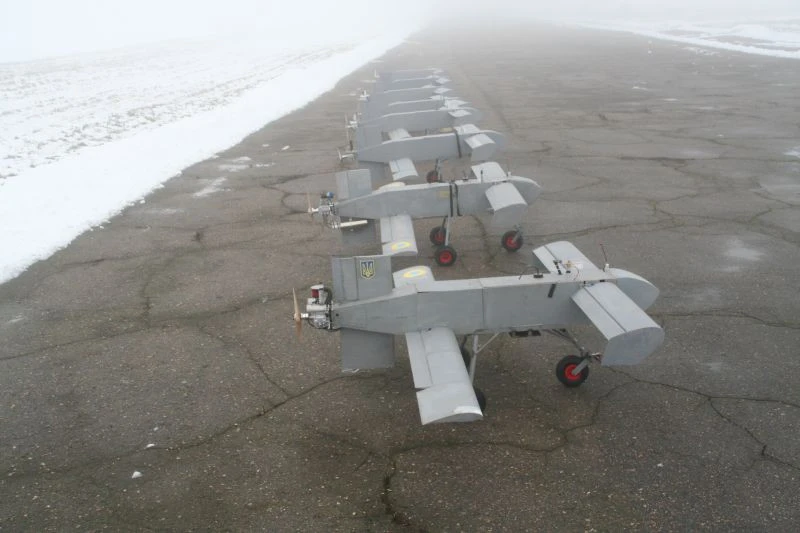
Photo: Terminal Autonomy
To wage wars, one needs money. As already noted, Russians have to allocate nearly half of their budget to various defense needs, including the war in Ukraine. Considering that one-third of Russia's budget revenues come from the sale of oil and gas, halting this industry could lead to a shortage of funds to continue the war. In such a scenario, the Russian government would either have to print money (leading to inflation and public discontent) or cut spending on defense and the war in Ukraine. Therefore, targeted strikes by Ukrainian forces on Russian refineries, gas pipelines, and oil and gas extraction sites have a significant effect that could trigger a domino effect.
The peculiarity of the oil and gas industry is that it is interdependent on the entire process chain: from the exploration of deposits, extraction, and the network of oil and gas pipelines, compressor stations, storage facilities, processing plants, and terminals from where the raw materials are shipped to foreign consumers. If even one process is halted, eventually, all others will also stop. This will lead not only to significant financial losses but may also halt the entire industry for a long time, which is the ultimate goal of Ukrainian strikes.
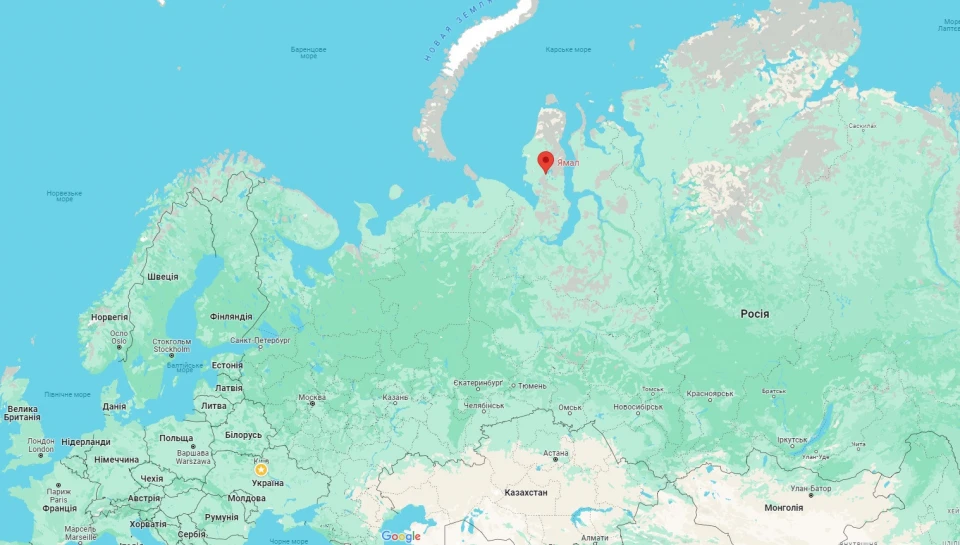
For example, gas in Russia is extracted practically in one place - in Yamal, from where it is transmitted through a system of main gas pipelines. On the map of main gas pipelines coming from Yamal, there is a special place where 17 major gas pipelines intersect - near the village of Pangoda. A strike on this facility could paralyze Russia's gas industry. However, this location is located 2,700 km away from Ukraine, so it is a challenging task (one of the reasons why it is more difficult for Ukraine to conduct drone raids deep into Russian territory than it is for Russia to conduct them into our territory - due to the significant distance to Russian strategic objects from the border). But there are also gas targets closer to Ukraine that could cause chaos in the most densely populated regions of the country. In particular, this includes the large Novoarzamasskaya gas compressor station near Nizhny Novgorod, which transports gas from Siberia to the entire region. And the Kasimov underground gas storage, located between Vladimir and Ryazan, southeast of Moscow, has a capacity of 12 billion cubic meters of gas and supplies the entire region with gas.
As for oil, strikes on oil refineries are the most optimal because, besides financial losses, they deprive Russians of fuel both for military equipment and civilian needs. And the increase in prices and the shortage of fuel always affect the population, which depends on gasoline at gas stations to keep the economy running. Thus, this has both an economic effect and puts psychological pressure on the population.
All of this suggests that the development of drone technology and its mass production can work just as effectively as Western sanctions. Therefore, precise strikes on the core of the Russian economy only accelerate the Ukrainian victory.
- Minister of Strategic Industries Oleksandr Kamyshin said that this year Ukraine has managed to catch up with Russia in terms of production of 'kamikaze' drones, which are similar to Iranian Shahed-131 and Shahed-136.
- News











































